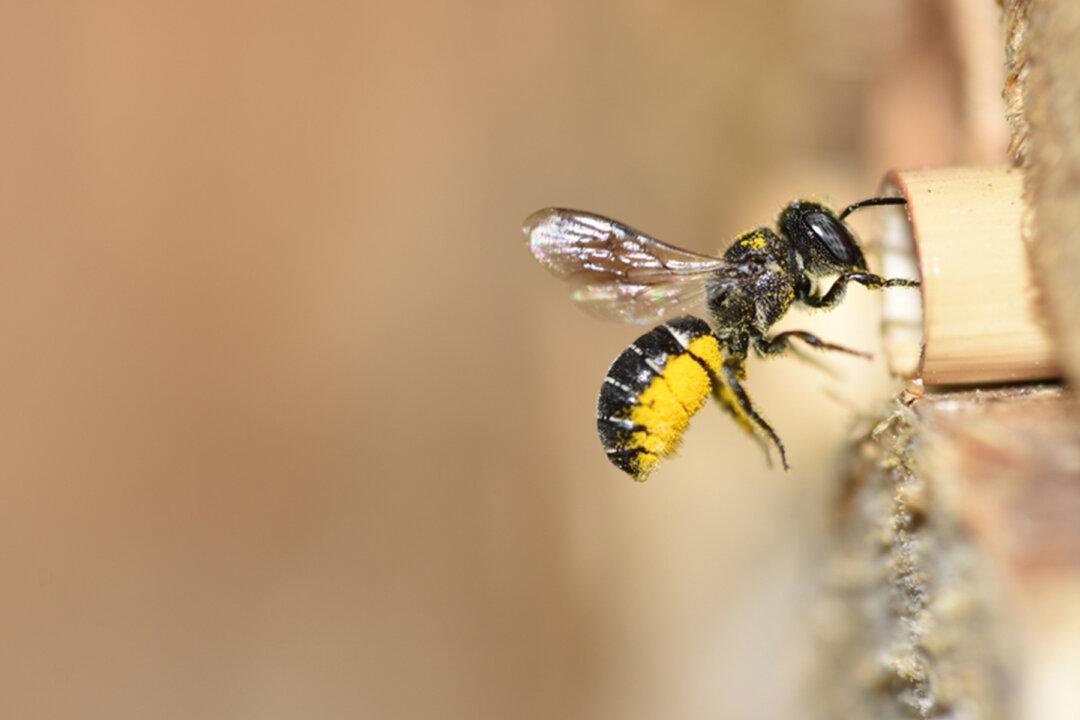McDonald’s in Sweden is making headlines for a new “real-estate development” in the form of “hotels” for bees, miniature lodgings specifically designed for bees to live in. The project aims to save local, ailing bee populations.
A billboard comprising McDonald’s advertising on one side has six separate “hotel room” compartments for bees on the back end has popped up in the town of Järfälla outside Stockholm, Sweden. The architectural firm NORD DDB joined forces with advertising agency JCDecaux for this biodiversity-conscious collaboration.




